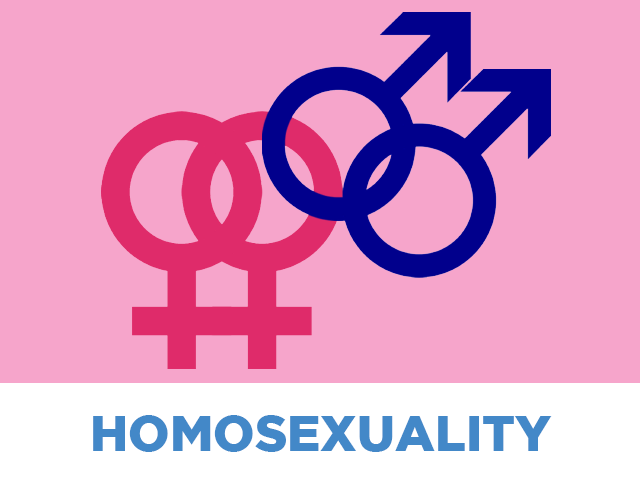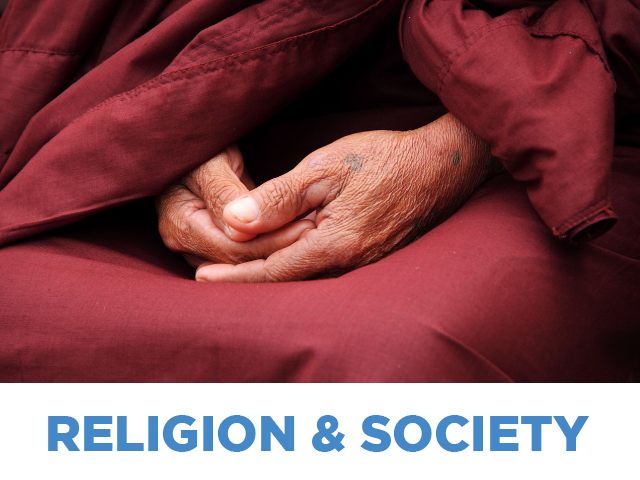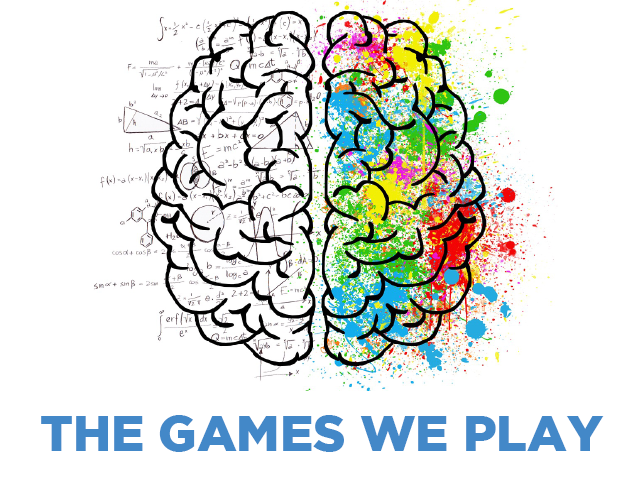![]()
There is no evidence that the development of same-sex attraction (SSA) is genetic.
Most teenagers will change from SSA. In fact, in the 16 to 17 year age group, 98% will move from homosexuality and bisexuality towards heterosexuality, perhaps experiencing some or exclusive opposite sex attraction for the first time.
Most teenagers thinking they are gay/lesbian/bi and will be for the rest of their life, will in fact probably be different the following year. It is therefore totally irresponsible, and flatly contradicted by the facts, to counsel affirmation of same-sex feelings in an adolescent on the grounds that the feelings are intrinsic, unchangeable, and the individual is therefore homosexual.
Pages 218-219 My Genes Made Me Do It – Whitehead
While a person may be predisposed to a certain behaviour, it does not necessarily follow that they are predetermined to develop that behaviour. Postnatal environmental factors - what people experience in life after they are born - can have a very significant impact on their behaviour.
New research in the field of epigenetics indicates why simplistic 'born that way' and 'can't change' suggestions may be wrong. Epigenetics is the study of mechanisms that switch genes on or off. It is involved in every aspect of life and such reversible, potentially heritable changes affect the way we live as well as our future generations. More at Epigenetics: Fundamentals and A Super Brief and Basic Explanation of Epigenetics for Total Beginners.

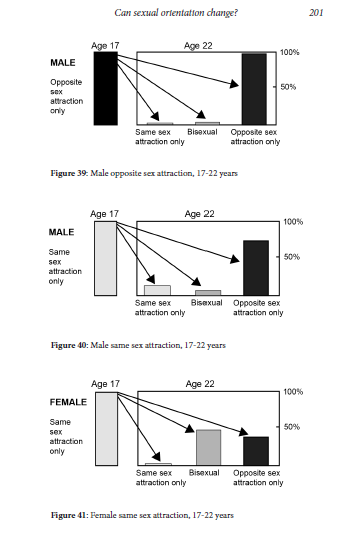
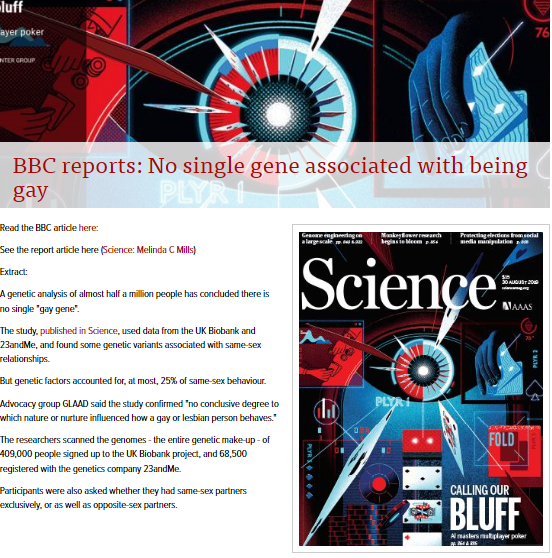
![]()
There is ever increasing evidence of sexual fluidity.

Are Sexual Orientation Change Efforts (SOCE) Effective Are They Harmful

